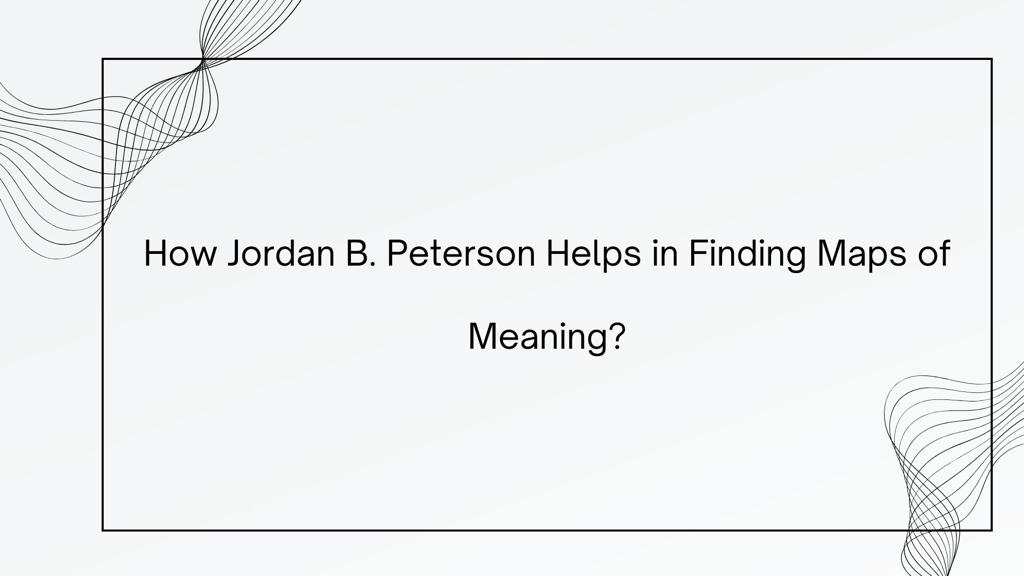Jordan B. Peterson wrote a book called “12 Rules for Life.” It’s like a guide to help people live better lives. He talks about things like being responsible, finding meaning, and dealing with the chaos in life. In addition, the writer uses stories and ideas from psychology and mythology to help explain his rules.
Rules for happiness
Jordan B. Peterson made 12 rules to help people live better. He came up with these rules because he knows a lot about how the mind works, helps people as a psychologist, teaches at a university, and really likes thinking about philosophy and mythology. The rules are like tips for a good and happy life.
Here’s a general idea of his process
Peterson talked to many people as a psychologist, and that helped him make the rules. He also knows a lot about psychology from teaching at a university. As a professor of psychology, Peterson likes thinking about stories from philosophy and mythology. Therefore, we find the use of explaining ideas in a creative style. The writer shares stories from his own life in the 12 Rules for Life. It is one of the reasons that it sounds more real.
Understanding human perceptions and behavior to find maps of meaning
Jordan B. Peterson helps individuals find maps of meaning through his teachings. Peterson explores the profound significance of symbols and mythology in shaping human perception and behavior. He delves into the archetypal stories that have been passed down through generations, showing how they provide a framework for understanding the complexities of existence.
Furthermore, he explains what he knows about the mind. At the same time, Jordan B. Peterson examines the deep layers of the human psyche. The writer helps individuals understand the psychological patterns and processes. Especially those that influence their thoughts, emotions, and actions. It provides insights into the maps of meaning that guide behavior.
Highlighting importance of responsibility
Jordan B. Peterson emphasizes the importance of taking personal responsibility for one’s life. By doing so, individuals can actively participate in the creation of their own meaningful narratives rather than being passive recipients of external influences. However, through his exploration of chaos and order. In addition, Peterson helps people to understand the necessity of integrating both elements into their lives. Finding meaning involves navigating the chaos of existence while establishing order through personal responsibility and ethical choices.
Battle of identity
Peterson discusses the role of narrative in shaping personal identity. By examining and understanding the stories we tell ourselves about who we are. However, individuals can gain insights into their values, motivations, and the meaning they attribute to their lives.
In essence, Peterson provides intellectual and practical tools for individuals to construct their own maps of meaning. By engaging with his ideas, people can gain a deeper understanding of themselves, their place in the world, and the narratives that give their lives purpose and direction.
What Jordan B. Peterson Highlights in the 12 Rules for Life?
Jordan B. Peterson discusses cultural and social issues to give us a broader perspective. The understanding of these rules help individuals to face challenges of the modern world. In addition, the writer combines many elements that help readers to find meaning in life. For example, psychological principles, philosophical concepts, and practical advice. It becomes helpful for readers who seek guidance on leading a more meaningful and orderly life.
Furthermore, Peterson does not talk much about simplifying things too much in his book. He doesn’t like rigid beliefs or thinking in extremes. He says it’s better to understand life’s challenges in a more detailed way. For example, he warns against extreme ideas and says it’s important not to see everything in just black or white. In his rules, he tells people to take charge of their lives, understand the complexity of things, and not go for simple answers.
Navigating life’s complexity
Jordan B. Peterson is against dogmatic beliefs. He doesn’t like when people stick to rigid ideas without considering the complexity of real life. Peterson, a clever author, wants us to think about how complicated life can be. He says, “Don’t just choose the easy answers.” This means, in friendships, society, and ideas, we should understand things deeply instead of going for simple solutions.
In this way, Jordan B. Peterson teaches in 12 Rules for Life to respond to challenges and chaos. His motivation stemmed from a desire to offer practical guidance to individuals grappling with the complexities of life. Here are some key motivations:
Cultural concerns
Peterson is deeply concerned about the direction of modern culture, including issues such as political correctness, ideological extremism, and the erosion of traditional values. “12 Rules for Life” serves as a response to these concerns, providing a framework for individuals to navigate the chaos of the world.
Psychological insights
Drawing on his extensive background in psychology, Peterson wanted to share psychological insights and principles that could help people understand themselves better and improve their lives. The book reflects his experiences as a clinical psychologist and a professor.
Personal and societal well-being
Peterson is passionate about the well-being of individuals and society as a whole. The rules are intended to be practical guidelines that people can apply to enhance their personal lives and contribute positively to the social fabric.
Philosophical exploration
Given Peterson’s interest in philosophy and mythology, the book also serves as a philosophical exploration of fundamental truths and principles that can guide individuals in their journey through life.
In essence, “12 Rules for Life” is a multidimensional work that addresses psychological, cultural, and philosophical aspects of human existence. Peterson’s motivation was to offer a meaningful and pragmatic guide to help individuals find order and purpose in a world that he perceives as increasingly chaotic.








